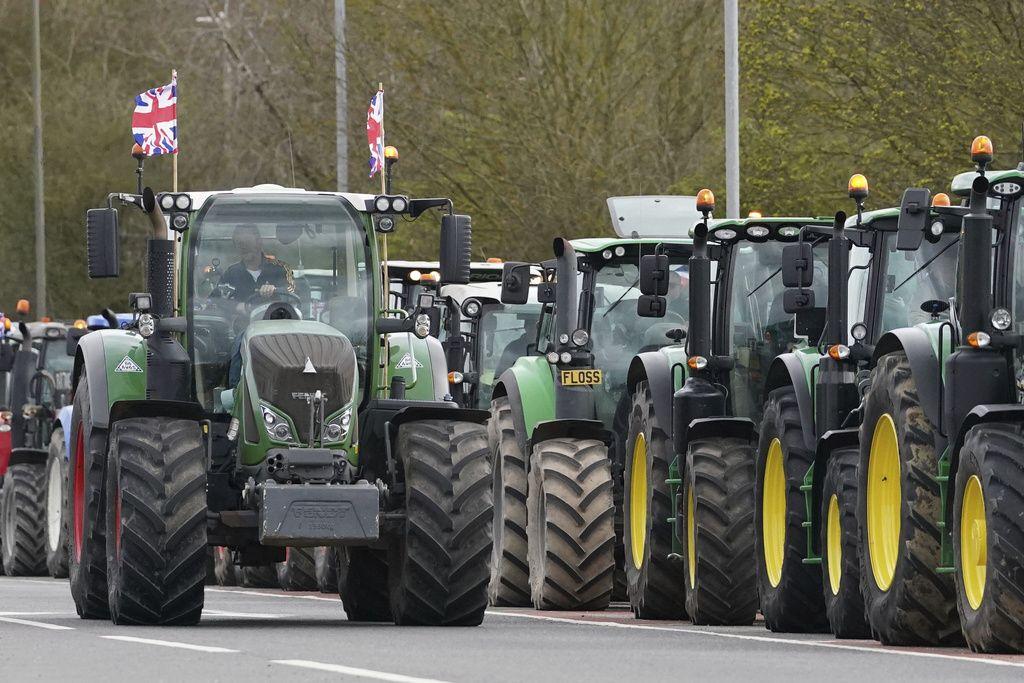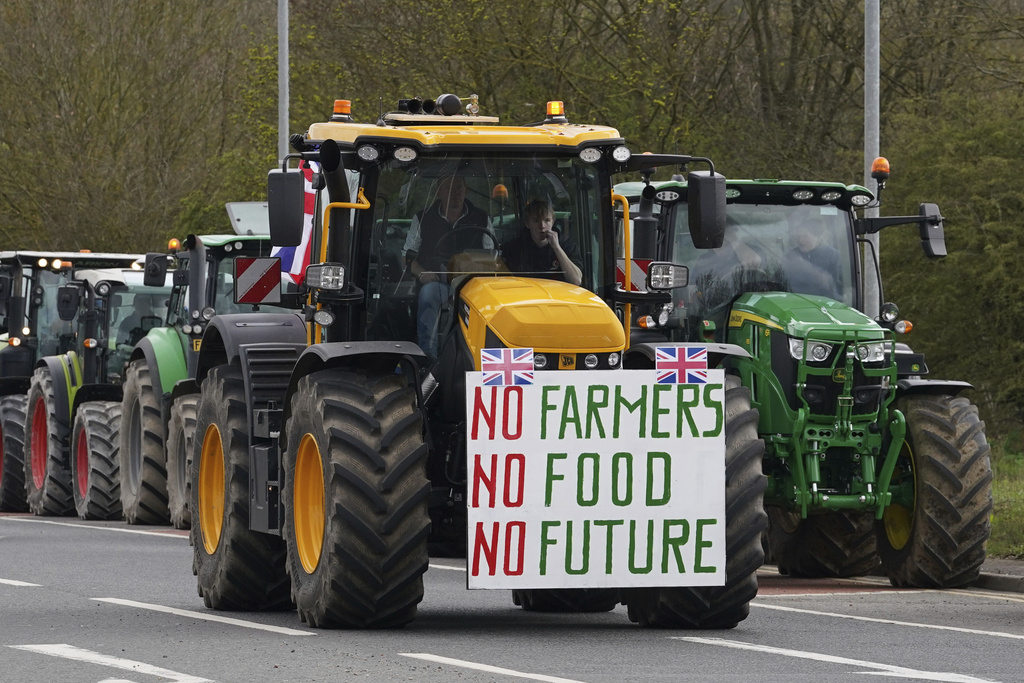
Farmers in Britain are protesting against trade agreements and post-Brexit rules they claim are endangering their livelihoods and food security
Dozens of tractors trundled slowly in a parade toward Britain's Parliament Monday, a palpable expression of dissatisfaction over trade agreements and post-Brexit rules that farmers claim are endangering their livelihoods and the country's food security.
Protesters from the advocacy organizations Save British Farming and Fairness for Farmers of Kent led the convoy as it made its way from the countryside of southeast England through the busy streets of the country's capital, arriving at Parliament Square.
An enormous crowd of admirers was waiting for them here, reflecting the feelings of farmers throughout the country.
Although the massive farmer demonstrations that have engulfed neighboring European nations have mostly escaped Britain, dissatisfaction within the farming community has been simmering.
Farmers in the European Union have complained about unfair competition from foreign markets, onerous bureaucratic restrictions, and strict environmental standards that they believe are driving them into financial disaster.
Brexit's effects on the agriculture industry have been profound, separating Britain from the EU's complex agricultural policy and free-trade agreement.
Although numerous British farmers originally backed Brexit, seeing it as a way out of the EU's much-criticized Common Agricultural Policy, the reality after Brexit has not been encouraging.
Trade agreements signed by the U.K. with countries such as Australia and New Zealand, according to critics, have opened the door to an influx of low-cost imports that have undercut home manufacturers.
The practice of tagging goods with the Union flag, which allows non-British products to pose as domestically produced, is particularly under the radar.

The delay of import controls, which were supposed to start after Britain's ultimate exit from the EU at the end of 2020, is making farmers' problems worse.
Farmers worry that this delay might seriously jeopardize biosecurity and expose the country to dangerous germs and illnesses.
Leading protester and Western England farmer Liz Webster, who raised cattle and arable land, was blunt in her criticism of the government's handling of the crisis.
"The government has completely deceived us all," she said, perfectly expressing the boiling resentment felt by farmers.
"Polling demonstrates that the public supports British farming and food and wants to maintain our high food standards and support local producers," she went on to say, highlighting the broad consensus among the populace in favor of promoting domestic agriculture.
Source: AP